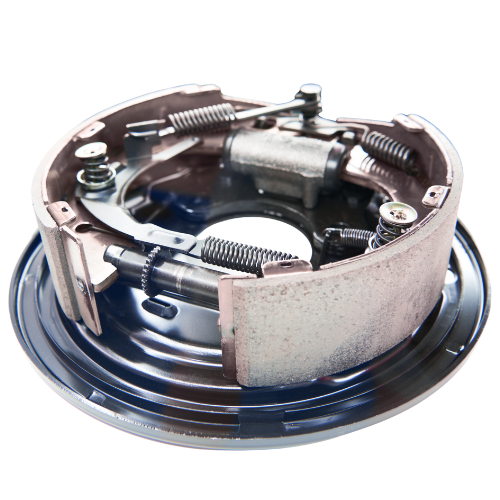Explore the four key components that make up a truck’s brake system—engineered to ensure safe, reliable, and powerful stopping performance on every road.

These globally recognized benchmarks guarantee that parts meet rigorous quality and performance requirements. But why should you choose certified parts? This article explores the importance of these certifications, their benefits, and how they influence the trucking industry.
IATF 16949 is a globally recognized quality management system tailored specifically for the automotive sector. Developed by the International Automotive Task Force (IATF), it integrates with ISO standards to ensure consistent quality across manufacturing processes.
Consistent Quality: It enforces strict quality controls during production.
By focusing on these principles, IATF 16949 ensures that every certified truck part meets high-quality standards, improving vehicle reliability.
The Society of Automotive Engineers (SAE) sets engineering benchmarks for vehicle components. These standards cover safety, performance, and compatibility, ensuring truck parts function optimally under demanding conditions.
Together, these standards provide a robust framework for truck part manufacturing.
IATF 16949-certified parts undergo rigorous quality control. Consequently, they offer higher reliability compared to non-certified components.
Certified components are designed to last. Their durability reduces maintenance costs and downtime, which is critical for fleet operators.
Certified truck parts meet international regulations, simplifying cross-border operations for fleet managers.
The certification emphasizes eco-friendly production, making certified parts a greener choice.
SAE-certified components are rigorously tested for safety. These parts are designed to minimize the risk of failure during operations.
Performance standards ensure that certified parts deliver optimal results, regardless of operating conditions.
Truck parts that meet SAE standards are often interchangeable across different brands and models, making repairs more straightforward.
Although initially more expensive, these parts reduce long-term costs by minimizing breakdowns and maintenance.
IATF 16949 ensures the quality management of the production process, while SAE standards focus on the technical specifications of the parts. Together, they create a holistic approach to quality and performance.
Manufacturers with IATF 16949 certification often follow SAE standards, ensuring compatibility and reliability across the supply chain.
Customers benefit from the reliability of truck parts that adhere to both certifications. This fosters trust and satisfaction.
The trucking industry depends on safe and reliable components. Certified parts reduce the likelihood of accidents caused by mechanical failure.
Many governments mandate certified parts in commercial vehicles to meet safety and environmental regulations.
Certified components improve vehicle uptime and performance, critical factors in logistics and fleet management.
The standards drive manufacturers to adopt cutting-edge technologies and sustainable practices.
FeatureCertified PartsNon-Certified PartsQualityGuaranteed through strict testingVariable, often inconsistentLifespanLonger due to superior materialsShorter, leading to frequent repairsSafetyMeets high safety standardsMay pose safety risksCostHigher upfront, lower in the long runLower upfront, costly over time
Manufacturers often include logos or certificates on packaging.
Certification bodies maintain online tools to verify product compliance.
Authorized dealers are a reliable source for certified components.
While certified truck parts may be more expensive initially, their reliability and durability often lead to lower overall costs. Reduced maintenance, better fuel efficiency, and fewer breakdowns make them a cost-effective choice in the long term.
New standards are emerging for EV-specific components, ensuring safety and efficiency.
Certified parts with embedded sensors will support real-time performance monitoring.
Certifications are evolving to include stricter environmental standards.
It ensures consistent quality and reliability, reducing the risk of failure and improving vehicle performance.
They guarantee the performance, safety, and compatibility of truck parts, reducing maintenance and operational costs.
Although possible, non-certified parts increase the risk of breakdowns and accidents.
While the upfront cost is higher, they are more economical in the long run due to reduced maintenance needs.
Check for official logos, consult manufacturers, or use certification body databases.
Expect more focus on EV components, IoT integration, and stricter environmental standards.
Choosing truck parts supplier certified with IATF 16949 and SAE standards ensures quality, safety, and performance. These certifications are essential for minimizing risks, meeting legal requirements, and enhancing operational efficiency. Whether you’re a fleet operator or a truck owner, investing in certified parts is a decision that pays off in the long run.